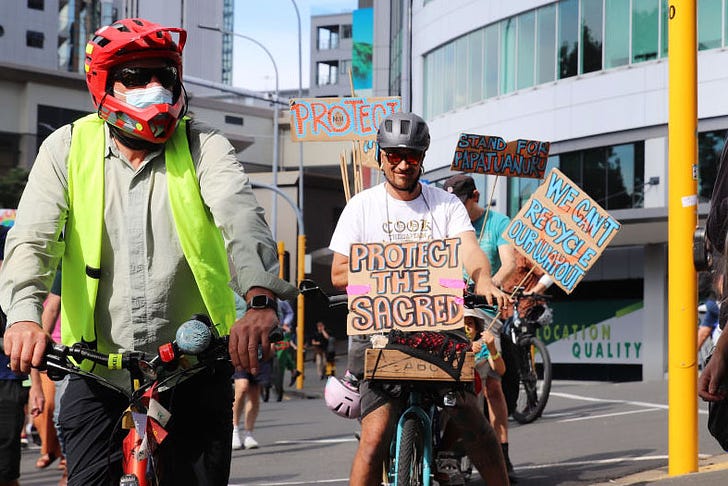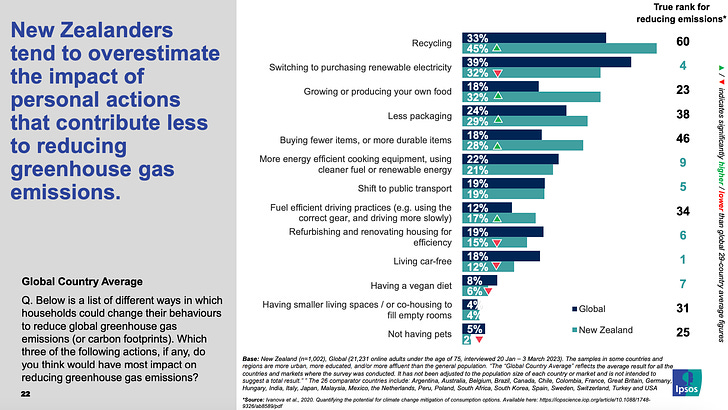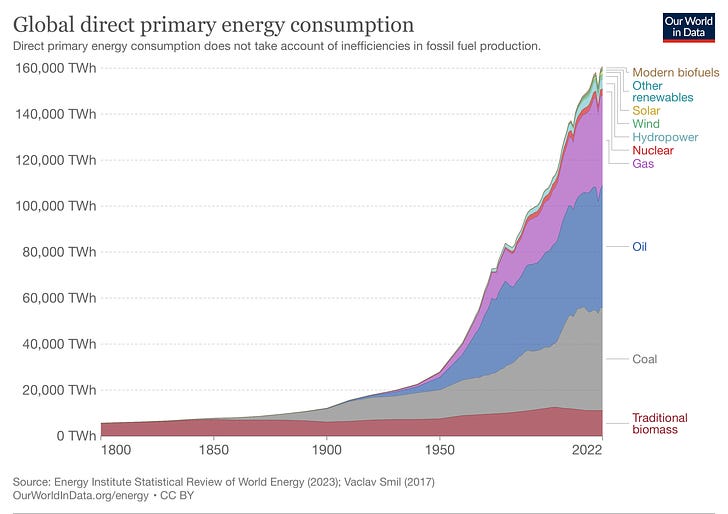The Kākā Project: The economics of sufficiency
Chris Hipkins and Christopher Luxon believe recycling and owning electric cars will take Aotearoa to net zero. Environmental historian Catherine Knight advocates economics of sufficiency instead

The Kākā’s climate correspondent
and had a chat with environmental historian and author Catherine Knight about why ‘feel good' actions like recycling and owning an electric car are unlikely to be enough to create a transition to zero emissions, let alone a just one.Knight says comments like those from Christopher Luxon and Chris Hipkins1 in their first debate are examples of a false belief that in the face of the climate crisis our economy can carry on with business as usual, but just in a greener fashion, with the assumption that consumption is the way forward.
So what it does is it completely misses the identification of the root cause of climate change and other major challenges we are seeing with habitat destruction, environmental pollution and so on, which is over-consumption.
And the fact that we are trapped in an economy that urges us to buy, consume, have the best, the brightest, and the latest of everything, with no thought to the environmental impact of that consumption. Catherine Knight
Cathrine refers to an Ipsos Climate Change survey in New Zealand in March, which shows that Luxon and Hipkins share the perception with other New Zealanders that recycling and electric car driving are the best ways to respond to climate change and other environmental problems.

The problem is that actions like recycling fall much lower on the list of effective actions than others, including living car-free and shifting to public transport. The chart above shows the rankings of effective actions, as suggested in this paper Quantifying the potential for climate change mitigation of consumption options, which ranks recycling at 60th.
Knight is concerned by the ‘green growth’ narrative that suggests all that is required is for everyone to switch to renewable electricity and buy electric vehicles. New Zealanders are also vulnerable to complacency given 80% of our electricity is from renewable sources.
What we don't realize often is that is just our electricity. Sixty percent of our energy supply comes from fossil fuels, from oil, gas and coal, including 20% of our electricity. And in terms of total energy consumed by end users, such as households and industry, only about 28% comes from renewable energy sources. So the more we consume, the more energy we are using. Catherine Knight.
Cathrine also pointed that after 30 years of transition, wind and solar power are still only providing 2% of total energy supply.

If GDP were to grow at a relatively modest 3% a year, the total economy would double every 24 years leading to a doubling of energy consumption. According to Knight, green growth supporters’ claims that the economy can be entirely decoupled from carbon emissions and other environmental harm is only partially correct.
The trouble is on a global scale, we have not seen decoupling of GDP growth from climate emissions or any other environmental harm, but especially climate emissions at a pace or scale adequate to meet our climate goals and to avoid catastrophic climate change and then tipping points. So it's really highly, highly risky to set our, you know, put all our eggs into the basket of green growth, which is empirically being shown not to stand up and to be able to do the job. It has just not happened so far at the scale and pace we need. Catherine Knight
A recent empirical study in The Lancet examines green growth claims to see if they are consistent with Paris Agreement targets and finds that the decoupling rates achieved are inadequate for meeting the climate and equity commitments made and cannot really be considered green at all.
What would a world using less energy look like?
Knight says policymakers should think more about sufficiency.
So an example I would often give is I guess around food, food sufficiency. You know at the moment we import an incredibly high amount of fruit and vegetables, wheat, 60% of our pork is imported even though we grow it here domestically.
We have become incredibly reliant on food that is imported. And you'd think that if there's anywhere in the world that could be pretty much self-sufficient in terms of food, it would be New Zealand. We are pretty well endowed from a climate perspective, from a soils perspective, they're not perfect, but they're not too bad. From a water perspective, which is going to become increasingly an issue in the next sort of decade or two. Catherine Knight
Knight says one approach would be to flip around the debate to focus on the wellbeing of the population and keeping within ecological limits.
That is where I would like to see us shifting instead, which would mean downscaling production and consumption that is not really absolutely critical to wellbeing. Catherine Knight
Knight referred to France adopting sufficiency as a policy principle in its energy policy, enacting legislation which made sufficiency, rather than an assumption of growth, its central principle. And she said they're also looking at developing something similar around water as well.
‘Focus on wellbeing instead’
Knight says a better leaders debate would have acknowledged there are limits to growth and we are starting to hit them and climate change is just one symptom of that.
She says big corporations currently spend billions marketing consumption as essential to happiness, when often it results in damage to the environment and the consumers themselves.
If we are able to paint a picture of an economy of a society where perhaps instead of everyone owning everything they need in their daily lives that there is a level of sharing within a neighbourhood, for example car sharing, and have just way more connection with the place we live, with the people that we, in our neighborhood, that we're more localized and have thriving local economies and community gardens and places where there can be much more intergenerational connection.
Because we know there's an epidemic of loneliness, especially among older people, but often actually younger people too. And this is growing and associated with really bad health outcomes. Catherine Knight
Dr Catherine Knight is an award-winning writer, environmental historian and a policy practitioner currently working in regional government. She is an Honorary Research Associate at the School of People, Environment and Planning, Massey University, and has published a number of books, including Beyond Manapouri: 50 years of environmental politics in New Zealand (Canterbury University Press).
Luxon and Hipkins were asked in the first leaders debate what they were doing to reduce emissions and save the planet. They referred to recycling and owning electric cars.





This one is open from the start and can be shared.
Knight is bang on. I'd add that the mineral inputs required for the amount of EVs required to replace the majority of combustion vehicles in the world doesn't exist, it's pure fantasy land.
The Chris' are just reflecting what NZers want to hear, "growth is infinite and we can still consume all the things we want". Some strong copium for the masses.